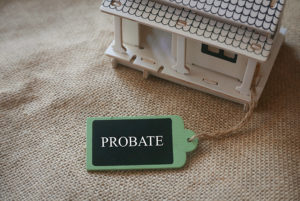Can my ex-husband/ex-wife claim my parents’ inheritance?

You’ve moved on from your marriage, perhaps painfully, and are trying to rebuild your life. Yet, one nagging question keeps you up at night: can my ex-husband/ex-wife claim my parents’ inheritance? Just thinking about it can reopen old wounds and spark legitimate concerns. In the UK, inheritance law and family disputes often overlap in complex and unexpected ways. If you’re unsure whether an ex-spouse can claim part of your family inheritance, it’s essential to understand your legal position by consulting a solicitor who specialised in inheritance and estate disputes.

Key Takeaway: Can ex-spouses claim inheritance from former in-laws?
Read on to discover what the law says, in what circumstances an ex-spouse can make a claim, and how you can protect yourself effectively.
Divorce and separation: what are the legal effects on your inheritance rights?
In the UK, divorce automatically ends any inheritance rights a spouse held during the marriage. This means that once legally divorced, your ex-husband or ex-wife is no longer recognised as your heir by default.
However, inheritance can become more complex when it hasn’t yet been received, especially when it involves assets from your parents. So, can your ex-husband claim your parents’ inheritance in the UK?
The answer depends on several factors:
- Timing of death: If a parent passes away before the divorce is finalised, inheritance rights may differ compared to a post-divorce death.
- Nature of the inheritance: Whether the asset was a gift, a bequest under a will, or passed on with specific conditions can affect how easily it can be contested
- Existence of a valid will: A clear, well-drafted will can help reduce the risks of disputes, but may not prevent a claim entirely.
- Provisions of the 1975 Inheritance Act: This law allows certain individuals, including ex-spouses in specific cases, to claim against an estate if they believe they have not been “reasonably provided for.”
- Financial dependency: If the ex-spouse is financially reliant on the deceased, their claim may be stronger. Divorce agreements: A final financial settlement, or Clean Break Order, approved by the court can significantly limit or eliminate the possibility of any future claims.
The Inheritance Act of 1975: Can ex-spouses still make a claim?
Under the Inheritance (Provision for Family and Dependants) Act 1975, certain people, including an ex-husband or ex-wife, may be eligible to claim against an estate if they believe they were not reasonably provided for. However, such claims are only permitted under strict legal conditions:
- The death must have occurred in England or Wales.
- The applicant (ex-spouse) must not have remarried.
- They must demonstrate financial dependence on the deceased at the time of death.
- The claim must be made within six months of the Grant of Probate (the official confirmation of the estate).
So, can a separated wife claim your inheritance in the UK? If you are separated but not yet divorced, a claim could still be possible, especially if financial dependency can be shown.
Can my ex-husband claim my Inheritance after divorce?
To answer this question accurately, it’s important to distinguish between inheritance you’ve already received and future inheritance that you may receive after your parents pass away.
- Your current inheritance refers to what you’ve already received from your parents, either as a gift or through their estate. It forms part of your personal estate unless stated otherwise.
- Future inheritance (i.e., what you will receive upon your parents’ passing) is not legally yours while your parents are alive . It remains their property and can be modified, revoked, or reassigned at any time.
Generally, an ex-spouse cannot claim an inheritance you have not yet received, except in exceptional circumstances:
- The inheritance was included in the divorce financial settlement.
- No Clean Break Order was issued, meaning financial ties between you and your ex remain open .
If your parents pass away, and you receive a share of their estate, that inheritance becomes part of your personal assets. At that point, an ex-husband could potentially make a claim, but only if the conditions of the Inheritance Act 1975 are met.
Are Inheritances always excluded from financial settlements?
In the UK, inheritances are generally treated as non-matrimonial property . This means they are usually kept separate from the pool of assets during a divorce, and are not subject to the same sharing rules as jointly acquired assets.
However, in practice, this this principle is not absolute. Family courts have the discretion to consider an inheritance as part of the financial settlement if it is necessary to achieve a fair outcome, particularly where:
- There are children who need ongoing support, or
- One spouse is in a financially vulnerable position, leading to significant economic imbalance.
In such cases, the court may conclude that using part of the inheritance is appropriate to ensure financial stability for the spouse in need. This makes it essential to consult a solicitor if a significant inheritance is involved, especially if your divorce is not yet finalised.
How can you protect your inheritance from an ex-spouse’s claims ?
If you’ve received or expect to receive an inheritance, it’s important to take proactive steps to safeguard your inheritance and prevent any claims from your ex-spouse:
- Secure a Clean Break Order during your divorce: This court-ordered legal protection formally ends all financial obligations between you and your ex-spouse, and bars future claims, including on inheritances.
- Keep detailed record of the inheritance: Ensure you retain all relevant documentation showing that the inheritance was personally intended for you, such as your parents’ will, letters, or proof of financial gifts.
- Draft a clear will excluding your ex-spouse: If you’re leaving an inheritance to others, explicitly state in your will that your ex-spouse is excluded from claiming a share of your estate.
- Clarify trust provisions: If you’re the beneficiary of a trust, ensure the trust’s terms clearly exclude any claim by an ex-spouse, providing you with additional peace of mind.
Do I need to consult a solicitor to protect my inheritance from an ex-spouse?
Navigating the complexities of inheritance law and disputes between ex-spouses requires precise legal expertise. A solicitor specialising in wills, trusts, and estate litigation can help you:
- Understand your legal rights and whether an ex-spouse may have a valid claim;
- Draft strong legal documents, such as wills, Clean Break Orders, or trust deeds;
- Respond to legal challenges involving former partners or family members;
- Protect your family’s inheritance through tailored legal strategies.
FAQs
- Can my ex-spouse claim my parents’ inheritance after a divorce? Generally no., An ex-spouse cannot claim an inheritance received directly from your parents, unless exceptional circumstances apply, such as a financial dependence or a claim under the Inheritance (Provision for Family and Dependants) Act 1975.
- What should I do to protect my inheritance? Finalise a Clean Break Order, draft a clear will excluding your ex-spouse from any access, and consult a solicitor to ensure your inheritance is properly structured and shielded from potential claims.
- Can a trust protect my inheritance? Yes. A trust can offer additional protection, especially if it’s drafted to exclude ex-spouses from any access or claims on the assets held.
- What about inheritance you’ve already spent? If the inheritance was received before the divorce and has been spent, it may still be considered during the financial settlement, particularly if no Clean Break Order was in place at the time.
Protecting your inheritance from potential claims by your ex-spouse requires thoughtful legal planning and the right protections in place. If you have any questions or concerns, speaking with a solicitor who specialises in inheritance law and estate disputes is the best next step.
Worried about inheritance and divorce?
Don’t leave your inheritance vulnerable to legal challenges from an ex-spouse. Qredible’s trusted network of solicitors specialises in wills, trusts, and estate disputes, ready to protect your assets and your peace of mind.
KEY TAKEAWAYS
- An ex-spouse generally cannot claim your inheritance unless there is a financial dependence or a claim under the Inheritance (Provision for Family and Dependants) Act 1975.
- Protect your inheritance by finalising a Clean Break Order, drafting a clear will, and keeping documentation that proves your inheritance is personal.
- Trusts can offer added protection, particularly when they are drafted to exclude ex-spouses accessing inherited assets.
Articles Sources
- legislation.gov.uk - https://www.legislation.gov.uk/ukpga/1975/63
- legislation.gov.uk - https://www.legislation.gov.uk/ukpga/1973/18
- gov.uk - https://www.gov.uk/make-financial-agreement-after-divorce
- gov.uk - https://www.gov.uk/trusts-taxes
- citizensadvice.org.uk - https://www.citizensadvice.org.uk/family/death-and-wills/changing-a-will/what-happens-to-your-will-when-you-divorce-or-marry
Do you need a solicitor?
Find a solicitor on Qredible in just a few easy steps















